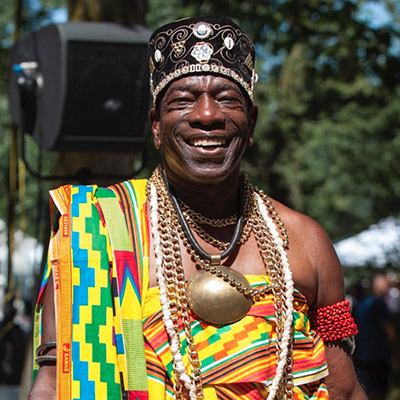Keti Koti
Keti Koti, a Surinamese term, means ‘Broken Chains.’ It symbolizes the abolition of slavery on July 1, 1863, in the then-colonies of Suriname and the Dutch Antilles, marking the end of a dark period in Dutch history.
Over the past decades, various individuals and groups, especially those with Afro-Surinamese, Dutch, and Antillean backgrounds, have engaged on different scales with commemorating and celebrating the abolition of slavery.
The establishment of NiNsee, the National Institute for the Study of Dutch Slavery and its Legacy, and the creation of memorials, including the National Slavery Monument in Oosterpark, are direct results of these efforts.
At the annual Keti Koti Festival on July 1, we reflect on the past, look to the future, and celebrate freedom, equality, and solidarity. Expanding knowledge and deepening insight should lead to a unification of efforts for a shared future.
The Keti Koti Festival aims to bring new energy to the commemorations, rituals, and celebrations that have sometimes been hidden away in community centers and small bars for years. The festival seeks to unite all initiatives from the various involved groups into one shared event. The goal is to create a commemoration and celebration that will resonate not only with those directly involved but with all Dutch citizens, regardless of cultural background.



